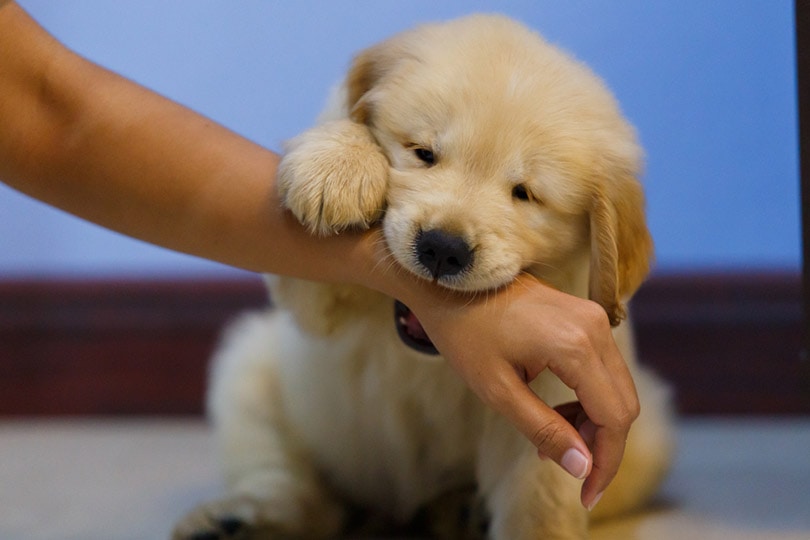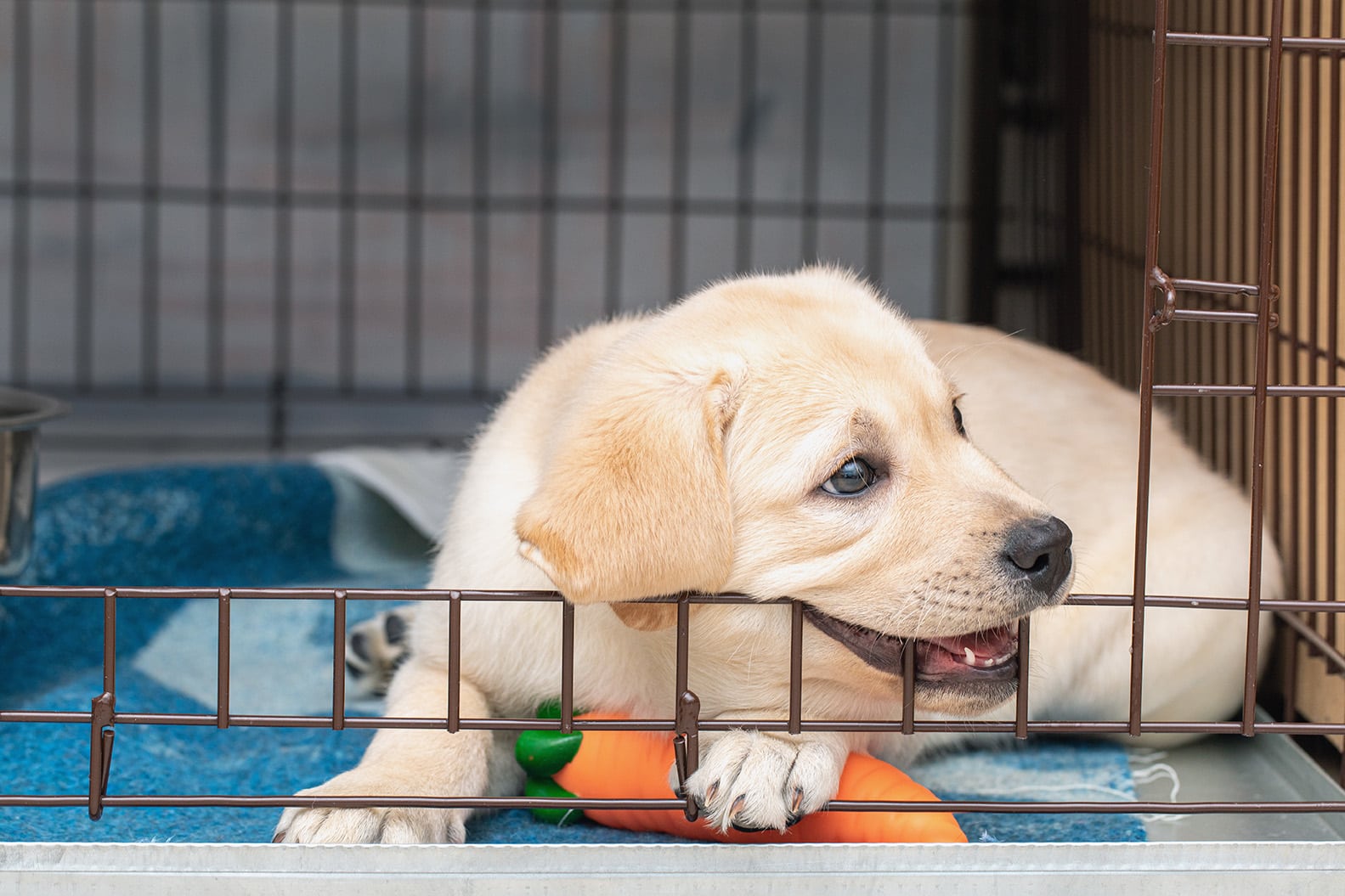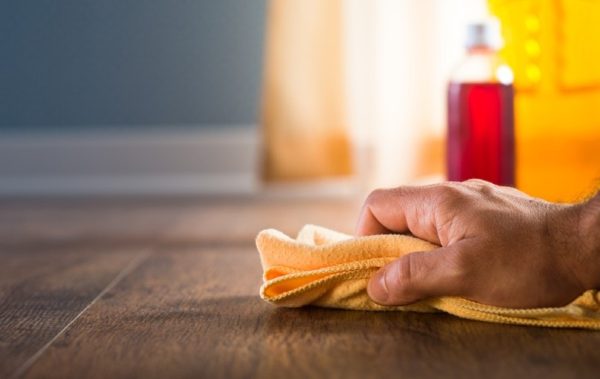In this article
The day has finally come—you finally brought home your new puppy! Everyone is excited about the new addition, and the day is spent watching the puppy explore their new surroundings and playing with their new toys. The puppy takes random naps for hours at a time, so you think the puppy won’t have any problem sleeping at night.
Nighttime falls and everyone’s ready for bed, but your puppy is suddenly whining hysterically and won’t fall asleep. Every night is the same story: everyone is ready for bed, and your puppy just cries continuously. It’s natural to wonder, do puppies sleep through the night? We are here to offer you some tips on how to get your puppy to sleep through the night so everyone can get a little shut-eye (and keep their sanity).

Why Won’t My Puppy Sleep Through the Night?
Most puppies go home with their new owners around 8 to 10 weeks of age, which is considered an optimum age by both breeders and veterinarians alike. Most breeders start socializing their puppies around week 6, up until the puppy leaves with their new owner, and continues socialization in their new home. Reputable breeders gently start introducing puppies to children, new people, other animals, and new stimuli and environments to help them transition to their new homes.
With all this training going on, you would think that the puppies are ready to just go home with their new owners with no issues. But your puppy isn’t sleeping through the night, and there are a few simple reasons why. The sad truth is that your puppy likely isn’t sleeping through the night because they miss their mother. Your puppy did everything with their mom and other littermates before coming home with you. They ate together, played together, and slept all bundled together.
It’s not hard to put yourself in your puppy’s shoes when you think about the fact that they used to spend all their time with their family and now they’re just gone. You can do a few things to help your puppy grow in confidence in their new home and to help ease your puppy’s transition to help them sleep through the night.
Another consideration is also the stress involved with changing life circumstances, like moving house, losing contact with the mom and littermates, and getting used to new surroundings, sounds, and new people. All of this can make a lot of puppies start a little bit shy or even eat less than you would expect. They may sleep well for the first few nights, as the change may have tired them out, but they will slowly start opening up and showing their character.


Top 6 Tips to Help Your Puppy Sleep Through the Night
1. Develop a Set Routine
A routine will help your puppy differentiate between playtime and sleep time. Walking or playing with toys a few hours before bedtime will help ensure your puppy receives enough mental stimulation during the evening to help them wind down at night to go to sleep. Setting a routine will help your puppy recognize that this is when you all sleep, and being tired will help in achieving this goal.
2. Crate Training
A crate becomes a safe haven for many puppies as they age. Many breeders will send home a blanket or a toy that smells like the mother or littermates. To help your puppy sleep at night, put the blanket on the crate’s floor to help your puppy fall asleep to a familiar scent. If the crate is a wire crate, cover it with blankets to help make the space dimmer, which appeals to your puppy’s instincts for a den-like dwelling. This will also help your puppy sleep a little later as they tend to wake up with the first light of morning.
Over time, the crate will become your puppy’s go-to place when they want to nap or just need some alone time. Make a lot of positive associations with the crate by offering treats, food, toys, and attention, and reinforce them through repetition many times per day so your puppy chooses to go in the crate on their own. You can place this crate in the bedroom with you during the first weeks of your puppy living with you so you can hear them when they cry to go out.

3. Prepare for Crying
Your puppy is used to having their mom and littermates to sleep with at night, and they will seek attention, so be prepared for some crying, howling, and barking as they learn to spend time alone. This will likely be distressing, but leaving your puppy in the crate and not giving in to the temptation to let them out when they cry will reinforce that it’s time for sleep and not for play.
One way to help ease the crying is by praising and rewarding your puppy with a treat when you put them in the crate at night. Your puppy will quickly learn to associate the crate with the reward and will stop crying. Licky mats with a tasty spread of wet food, Kong toys, or slow feeders may be another great way for your pup to combat boredom in their crate and refrain from destructive chewing.
4. Nighttime Potty Breaks
Your puppy will need bathroom breaks during the night to relieve their bladder. You’ll be able to hear your puppy cry if they’re sleeping in the crate in your room. Take your puppy outside to relieve themselves, praise them, and then return them to bed immediately. If your puppy has accidents in the crate, you may need to set an alarm every couple of hours to wake you up to take the puppy out. You should only have to do this for a short period as your puppy becomes potty trained and can hold their bladder for longer as they grow.

5. Stop Unnecessary Activity
After you’ve put the puppy in their crate ready for bed, it’s time for you to quiet down too. If you’re walking around, talking, or performing any of the usual chores, your puppy will likely seek your attention, as they can hear and see you. Try to time your bedtimes together, so they can learn to sleep when you go to bed, or at least do your best to be quiet.
6. Try a Heartbeat Toy
Some toys on the market simulate the heartbeat of the mother dog. The Smart Pet Love Snuggle Puppy Behavioral Aid Dog Toy uses heat and a pulsing heartbeat sound to help alleviate anxiety, loneliness, and fear in young pups. Using these under supervision is best so your puppy doesn’t inadvertently chew it apart and end up choking or ingesting the batteries.
Alongside using soothing toys, offer your puppy reassurance in the first few nights, and make sure they are not fearful or anxious, as this will worsen when they’re left on their own in the crate.

In Conclusion
It’s hard when your puppy is not sleeping through the night. Lack of sleep is not good for your puppy or you, but the good news is that this is just a short phase in your puppy’s life. Using the tips we listed will help ease your puppy’s transition to their new home with you, and within a few weeks, they will be sleeping through the night. Before you know it, this will all just be a fuzzy memory as you and your pup have a lifetime of play and love between you.
- Related Read: How to Give a Puppy a Bath? Step-by-Step Guide
Featured Image Credit: Sundays Photography, Shutterstock



















